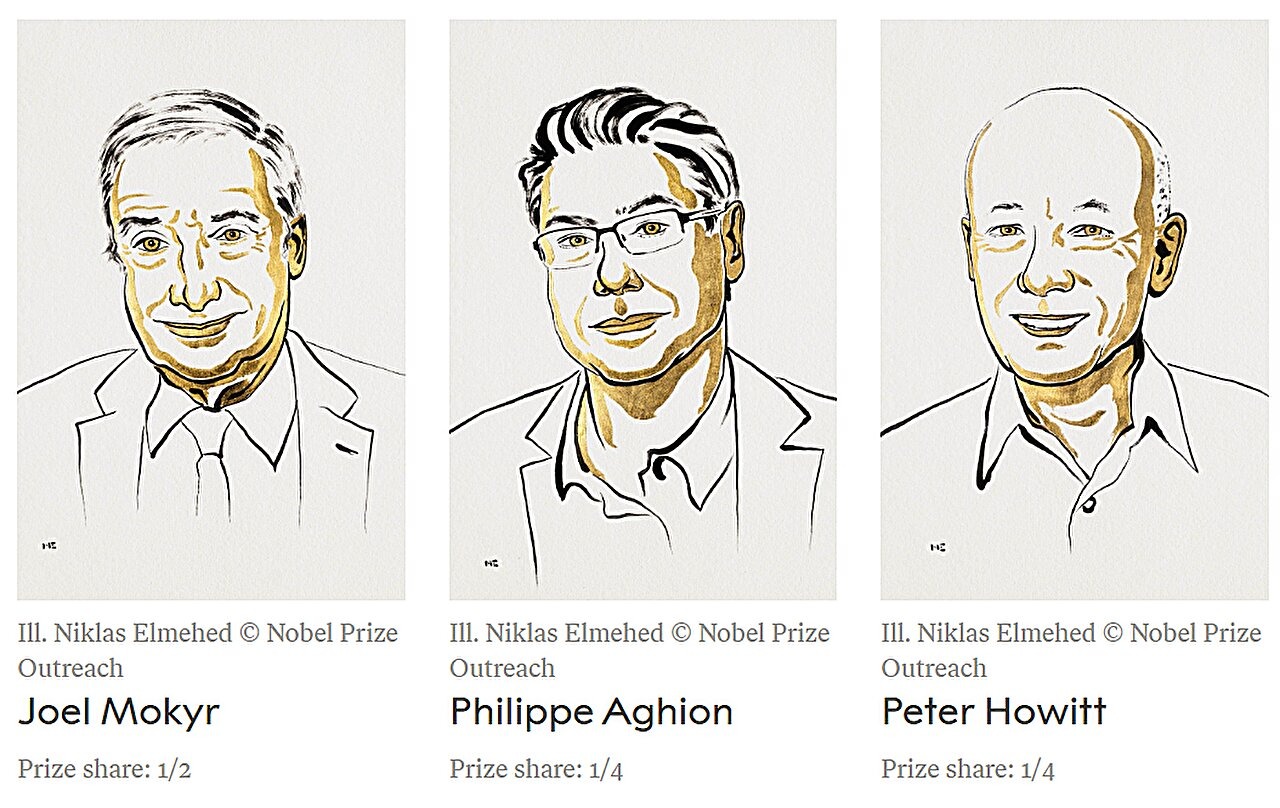The 2025 Nobel Prize in Economics celebrates the idea that growth is not just about numbers but about renewal—how societies reinvent themselves through innovation, knowledge, and adaptability. This perspective, championed by economists Mokyr, Aghion, and Howitt, reframes development as a dynamic, evolutionary process rooted in continuous transformation.
The study of economic growth has long been associated with metrics like GDP, productivity, and capital accumulation. But the 2025 Nobel Prize in Economics has shifted the spotlight to a deeper truth: growth is fundamentally a story of renewal. Awarded to Joel Mokyr, Philippe Aghion, and Peter Howitt, the prize honors their pioneering work on how technological innovation and knowledge diffusion drive sustained economic development.
Key Highlights
-
The Nobel Committee recognized the trio for explaining how innovation, rather than just capital or labor, fuels long-term growth
-
Their models show that growth emerges from the constant renewal of ideas, institutions, and capabilities—not merely from scaling existing systems
-
Joel Mokyr’s historical research emphasizes how cultural attitudes toward knowledge and experimentation shaped the Industrial Revolution and beyond
-
Aghion and Howitt’s “Schumpeterian growth theory” highlights creative destruction, where new technologies replace outdated ones, fostering renewal
-
The award underscores that growth is not linear but evolutionary, requiring societies to adapt, reorganize, and embrace change
-
This perspective aligns with contemporary challenges such as climate change, digital disruption, and demographic shifts, where renewal is essential for resilience
-
The Nobel announcement has sparked renewed interest in how education, innovation policy, and institutional reform can catalyze inclusive growth
-
The laureates’ work also emphasizes the role of competition and openness in fostering innovation ecosystems
By framing growth as a process of renewal, the Nobel Prize invites policymakers, educators, and entrepreneurs to rethink development strategies. It encourages investment not just in infrastructure or capital, but in the intangible assets—ideas, skills, and institutions—that enable societies to evolve.
Sources: Indian Express, World News, Nobel Prize Official Announcements

